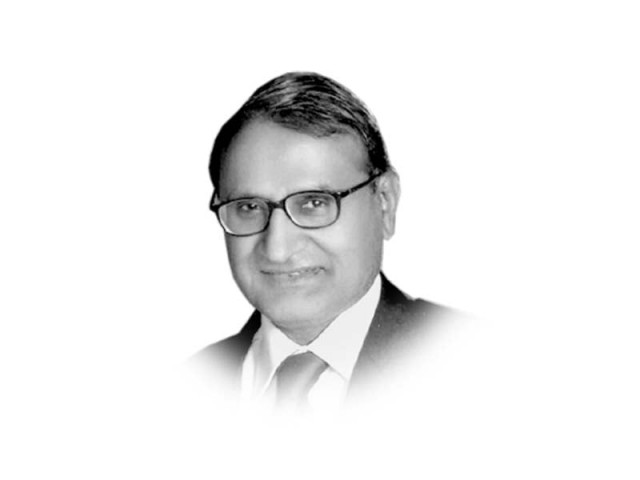Karamat Ali’s labour of love
Karamat was among the spearheads of the Social Forum that brought the workers of the world together

A little noticed survey published this month tells a story not exactly startling, at least to us, with workers being laid off from the PSM, PIA and other PSEs with more ease than the doing of business, as if the officialdom is trying nickel and dime them to death during an intensifying pandemic. This is on top of the millions of job losses in the private sector including media. Conducted by the World Justice Project and Gallup & Gilani Pakistan, it ranks Pakistan 127th across 128 countries in the world on effectively guaranteeing fundamental labour rights. These include freedom of association and the right to collective bargaining, the absence of discrimination with respect to employment, and freedom from forced labour and child labour. The bad brother Bangladesh ranks 118 and the bully dog India 98.
One wonders what must Karamat Ali, a veteran of labour rights, be thinking at a time when a Cambridge-trained academic, Dr Syed Jaffer Ahmad, has chronicled his long journey of trials and tribulations that began over half a century ago at Emerson College, Multan. From a Seraiki student activist to a militant labour leader in the industrial hub of Karachi to a national champion of human rights to a global citizen, Jaffer masterfully distils it all out from an incurably restless Karamat. Written in Urdu to make it accessible to the working class, Rahguzar Tau Dekho (loosely, Road Often Not Taken), it is an extremely readable Q&A of the working class’ struggle for peace, social justice and democracy, based on the first-hand experience and keen observation of one of its own. There is a special focus on Karamat’s organisational skills. You name a united working class initiative and Karamat will have a hand in it. Beyond his first love — labour — he was seen running around when the Women’s Action Forum was in the works, or Tehreek-e-Niswan was in the offing. He rubbed shoulders with all the leaders of progressive politics. Struggle, relentless struggle, is writ large on his face.
Not to be forgotten is the creative side of him. I first ran into him in this very month during the blackouts of the 1971 war in the Lahore Museum. While Sadequain muralised the walls and the roof, Karamat assisted with calligraphy. A college dropout, he writes poetry, prose and translates some Sadequain’s rubáiyát into Punjabi. As the night falls, he enthrals the company by singing romantic songs and ghazals. There is no town in the land he has not painted red. Abroad, sky is the limit. One such night happened at a New York institute researching labour issues. On return he founded the Pakistan Institute of Labour Education and Research, in Karachi. He encouraged local economists to work, perhaps for the first time, on living wage, a concept broader than the administrative determination of minimum wage. It is a tribute to his influence that every economic moot in the country now invariably has a session on the emerging concerns of the workers. When the World Economic Forum began as a conclave of the rich and the powerful, Karamat was among the spearheads of the Social Forum that brought the workers of the world together.
In the words of Jaffer, “The study of this book will bring forth a few larger questions. All ideological people think about these questions and try to provide answers in their own way.” Karamat, doubtlessly, has his own way.















COMMENTS
Comments are moderated and generally will be posted if they are on-topic and not abusive.
For more information, please see our Comments FAQ